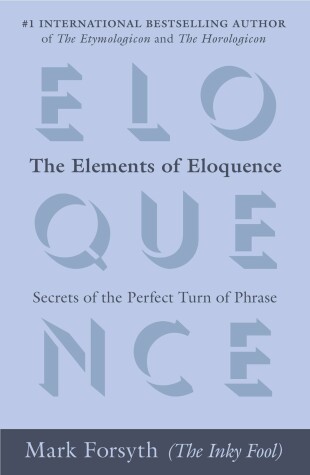Did you know that adjectives in the English language have to be listed in a certain order to be correct? Specifically, they need to be ordered opinion-size-age-shape-color-origin-material-purpose. So you can have a beautiful small vintage round cream Italian marble sewing table, but try to rearrange the order of those adjectives and you'll have chaos.
Furthermore, did you know that when you repeat a word with a different vowel it's always in the order of I A O? So you can say "pish-posh!" and you'd sound archaic but understandable, but try saying "posh pish!" and people will think you drank your lunch. Try it with any similar phrase: hip-hop, pitter-patter, jibber-jabber, tip-top, bish-bash-bosh; they all follow the same vowel order.
I knew neither of these and they were just in one chapter (chapter 8 - Hyperbaton). The Elements of Eloquence covers the figures of rhetoric; those rules, for lack of a better word, that make writing memorable, impactful, beautiful or unforgettable. Shakespeare used most of them as did most (all?) of the writers of merit throughout history.
Forsyth devotes one chapter to each of the figures and includes examples from great literature and poetry, great song lyrics and political speeches current and historical. He does it all clearly and with a dry humour that makes even the dullest of the figures interesting to read about. I don't think I've ever learned so much about my own language in all my schooling combined. He even described meters (the writing kind, i.e. iambic pentameter) in a way that not only made sense but I'll remember too. English teachers should use this as a reference, if not an actual text book.
If you have any interest in the English language I can't recommend this book highly enough. It's well-written, entertaining, well-researched, foot-noted and funny. I can't wait to read the other two books he's written that are sitting in my pile.
